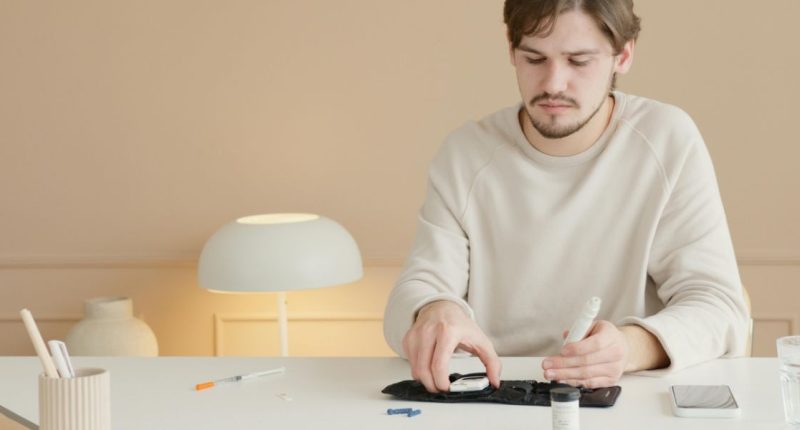A newly designed therapy following an islet cell transplant could mean people with type 1 diabetes no longer need to inject insulin, a new study has unveiled.
Individuals with type 1 diabetes control their blood sugar levels by taking insulin. In order to manage it correctly, they are required to measure their levels several times a day.
They can either do this by pricking their fingertips or by wearing a continuous glucose monitor. Low blood sugar, hypoglycaemia and diabetic ketoacidosis are all common problems of type 1 diabetes.
Dr Daniel Gilada was diagnosed with type 1 diabetes almost 20 years ago in secondary school. He said: “I felt so bad that it was becoming my new norm.
- Caution urged for off-label glucose-lowering drugs in type 1 diabetes
- Bacterial infection could bring on type 1 diabetes
- Ticks are helping pave the way for new type 1 diabetes treatments
“Diabetes is in every single decision you make, from the time you wake up until the time you go to sleep.”
Meanwhile, Marlaina Goedel was diagnosed with the condition at the age of five. Now 30 years old, she said: “I’ve crashed my car into a brick building before having a diabetic attack while driving.
“My significant other, who I’ve been with for 16 years, had had to pick me up out of bed from [my blood sugar] crashing in my sleep more times than I can count.”
She added: “My daughter has had to help lift me up off the kitchen floor and give me something to drink from my blood sugar crashing.”
Marlaina is now no longer using insulin and Dr Gilada had significantly reduced his insulin use thanks to a medical breakthrough which could change the landscape of type 1 diabetes care.
They were both part of a clinical trial which saw them undergo an islet cell transplant. The clinical trial is assessing the efficiency of an investigational therapy after islet cell transplant.
According to data from the trial, the first two participants are now insulin independent and have standard HbA1c levels, while the third reduced their insulin use by roughly 60% three days after the islet cell transplant.
People who have an islet cell transplant currently have antirejection medication after the procedure, but this medicine can be toxic to the transplanted cells.
Islet cell transplantation involves extracting islet cells from the pancreas of a deceased donor and implanting them in the liver of someone with type 1 diabetes. The infused cells lodge into those small blood vessels and start producing insulin.
Individuals with type 1 diabetes are dependent on external sources of insulin because their insulin-making cells in the pancreas have been destroyed from an autoimmune response.
Medication that suppresses an individual’s immune system is mandatory after islet cell transplants to stop the recipient’s body from rejecting it.
Tegoprubart, a new monoclonal antibody, is currently being tested in the trial Marlaina and Dr Gilada are involved in.
If successful, tegoprubart will replace the old antirejection drug which can be toxic to the transplanted cells.
Manufactured by Eledon Pharmaceuticals, tegoprubart is a man-made investigational anti-CD40L monoclonal antibody.
- Best exercises for people with type 1 diabetes outlined in new research
- Children whose mothers have type 1 diabetes less likely to have condition than if their father does
- Type 1 diabetes among youths with presymptomatic symptoms was higher during pandemic
It works by tricking the immune system to recognise the transplant as “self” to avoid immune rejection.
“These are potentially the first human cases of insulin independence achieved using an anti-CD40L monoclonal antibody therapy without the use of tacrolimus, the current standard of care for prevention of transplant rejection,” said the authors.
First researcher Dr Piotr Witkowski said: These data are another step in our quest to achieve a path for functional cures in type 1 diabetes.”
Dr Gilada said: “I haven’t felt this normal in 19 years. You have this daily renewal, this daily energy, motivation, whatever you want to call it, from help from someone else.”
Marlaina said: “We’re all very happy, honestly to not have to worry anymore. We can breathe. I hated everybody always worrying about me and wanting to know where I was at and what I was doing. It’s been so freeing and liberating, honestly. Nobody should live with that disease, and I know that even more now.”







